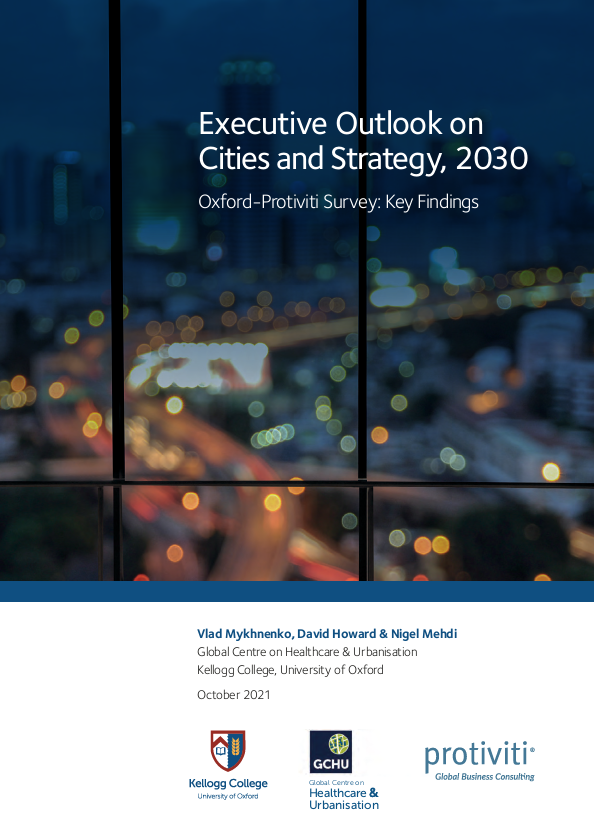The Global Centre on Healthcare and Urbanisation (GCHU) at Kellogg College, partnered with Protiviti to conduct a global survey of 200 business leaders in a variety of industries about the future of cities and related business strategies. Survey data was collected in August and September 2021.
One of the key takeaways is that even though cities around the world faced significant challenges due to COVID-19, 94% of executives believed cities will either be more important (64%) or as important (30%) to their overall strategy in 2030.
On the future role of cities, the research has found that while the majority (61%) of business leaders agree that the growing benefits of city size, significance, and prestige will propel economic and business growth leading up to 2030, these leaders perceive threats to their local cities differently around the world. These risks include shrinking tax revenues, aging infrastructure, uncertainty in real estate markets, cybersecurity threats, privacy concerns, political and social unrest, and climate change, which many city leaders see as their greatest threat.
Survey Highlights Urban Advantages and Challenges: Disparities Across Regions
Global business leaders found North American, European and Asian-Pacific cities attractive in different ways, according to the Protiviti-Oxford survey. In North America, access to technology hubs and educational systems were the top two drivers attracting business leaders to cities. Meanwhile in Europe, the talent pool and infrastructure were the two main drivers and in Asia-Pacific, technology hubs, tax incentives and pro-business regulation were reported as the biggest benefits of operating in cities.
However, these attractive benefits do not come without costs and challenges. Respondents based in North America and Asia-Pacific cited the political climate, regulation and taxes to be the greatest threats to cities in the coming decade. European respondents were split, reporting the top threats as data privacy and cybersecurity, as well as climate change and sustainability.
Dr. Vlad Mykhnenko, associate professor of Sustainable Urban Development at the University of Oxford who led the survey’s Oxford team of scholars, said: “It has become common to describe cities as engines of growth. But the rise of cities over at least the last 60 years has indeed been accompanied by quite a spectacular expansion of the world economy. Since 1960, for every 1% increase in the level of urbanisation globally, the world economy has grown by US$3.1 trillion. Cities are the engines of growth and global business leaders are clearly recognizing this.”

